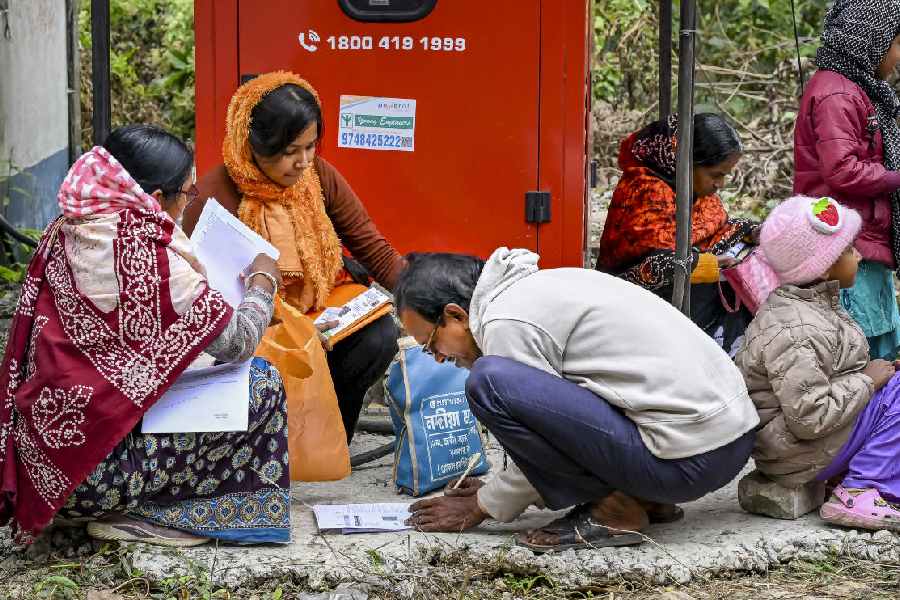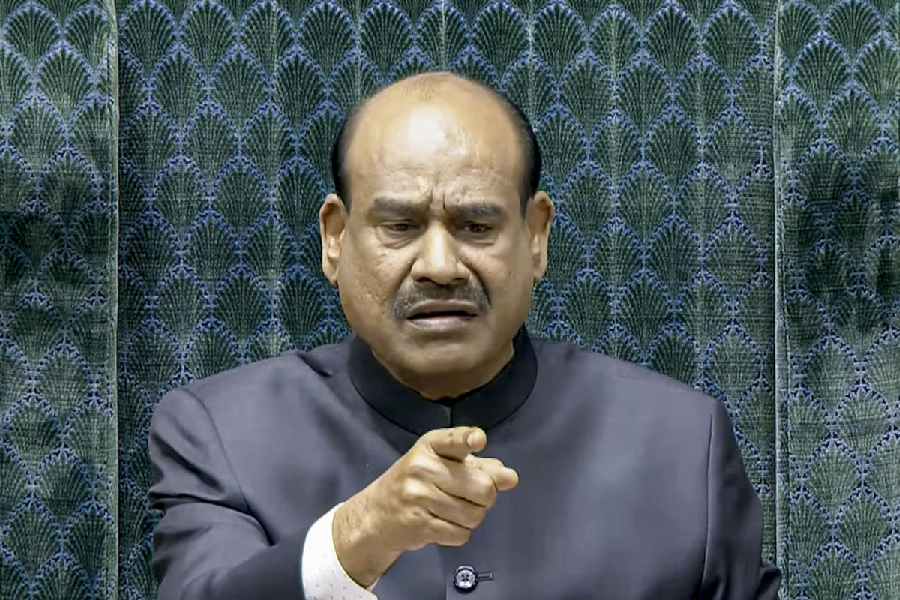 |
If only death could be postponed, Vijay Anand would have turned 87 on January 22. But the director died 12 years ago. And with him died a dream — a film called Jaana Na Dil Se Door. In 1998, Anand — maker of such classics as Guide (1965), Teesri Manzil (1966) and Jewel Thief (1967) — had told this correspondent about the film that was then being called Tan Man Dhan. “After 25 years Dev and I will be working together,” he’d said, referring to his brother, actor Dev Anand.
The film’s hero was a professor whose sedate life was disrupted by the appearance of a daughter he had not seen in 19 years. The daughter had a startling resemblance to his estranged wife and brought back a flood of memories. The film went on the floors, but after 16 days came to a grinding halt.
Earlier this month, when S. Ramanathan died, filmgoers mourned his death along with that of a film called Aaryaman, later rechristened Zamaanat. Ramanathan made Bombay To Goa (1972) with Amitabh Bachchan, and then the pair had three hit films together — Mahaan (1983), Geraftaar (1985) and Ganga Jamuna Saraswati (1987).
Aaryaman was started in Chennai in 1999 and missed its release date twice — in 2009 and 2010. But Ramanathan always thought that Zamaanat would see the light of day.
Like Ramanathan and Vijay Anand, many filmmakers have left behind unfulfilled dreams. When, on September 30, 2011, Chargesheet — Navketan’s 37th film — was released, producer-director-actor Dev Anand didn’t know that it was going to be his last release. He’d reminisced about Hare Rama Hare Krishna (1971) during his last meeting with this correspondent.
He planned to return to Nepal to film a sequel and was scouting for a younger Zeenat Aman to carry forward Jasbir’s story of a girl swept by the Hippie culture. But the film never took off — on December 3 that year, Dev Anand died in a London hotel.
The Anand brothers’ saga of unreleased dreams continues. Years ago, Chetan Anand had planned to film a dramatic love story that unfolds in the dead of night in a lonely gas station on a highway. Just before he took his last breath, he handed the script of the film Petrol Pump to his son Ketan Anand.
Another film that never materialised was Mukul S. Anand’s Dus, revolving around an anti-terrorist intelligence officer working for a secret organisation called Force 10. Sanjay Dutt is sent on a mission in search of an Afghan terrorist, Nasheman (Raveena Tandon’s first negative role). He is captured, tortured and brainwashed into believing that India has abandoned him, unaware that Salman Khan is out to rescue him.
Shooting began in Utah in May 1997. About 40 per cent of the film was completed by August. But work stopped when Mukul Anand suddenly died on September 7. All that remains of Dus are a few promo videos and the song, Suno gaur se duniya walon, buri nazar na hum pe daalo, chahe jitna zor lagalo sabse aage honge Hindustani.
The Sixties saw many such ideas being abandoned. In 1960, director Bimal Roy had taken some extraordinary shots of the Kumbh Mela to use as the backdrop for a feature that he was planning. But Amrit Kumbh Ki Khoj Mein died a premature death with Roy in 1966. The footage was unearthed 33 years later by his son Joy, who used 11 minutes of it in his short film Images Of Kumbh Mela.
On October 10, 1964, another visionary, Guru Dutt, was found dead in his bed. Many believe he committed suicide even though he had an appointment with Mala Sinha for Baharen Phir Bhi Aayengi and with Raj Kapoor to discuss colour films. He was also shooting for two films, Picnic and Love and God.
Baharen was completed with Dharmendra replacing Guru Dutt, and Love and God was released two decades later with Sanjeev Kumar in the lead. Picnic remained incomplete, as did Gauri, a Bengali film he had started with singer-wife Geeta but shelved after two reels. It would have been India’s first cinemascope film but that honour went to his Kagaz Ke Phool in 1959.
“Some films are not meant to be,” sighs actor Prosenjit Chatterjee, who should have been launched by Bengal’s superstar Uttam Kumar. Uttam Kumar planned to launch the teenage Prosenjit opposite Supriya Devi’s daughter Shoma in a crime thriller-cum-love story he was planning to direct.
Recalls Prosenjit: “A photo-shoot was done with Shomadi and me, but jethu (uncle) passed away on July 24, 1980. I had to struggle for two years before I landed another teenage romance, Duti Pata (1983).”
Kishore Kumar had a dream too. On October 13, 1987, he was watching Marilyn Monroe’s River of No Return when he suddenly decided that he was going to remake it in Hindi. He called for the actor Danny Denzongpa. Denzongpa was watching an Indo-Pak cricket match, but promised to be at Kishore Kumar’s Juhu bungalow that evening after the match ended. When he reached there, the singer-composer-actor-director had died.
On July 18, 2012, Bollywood bid adieu to Rajesh Khanna and his home production Jai Jai Shiv Shankar that he had launched in 1992 with estranged wife Dimple Kapadia. Director Ananth Mahadevan also put his Old Wine back in the cellar. He had planned to bring back the Raja-Rani jodi of the Seventies, Sharmila Tagore and Rajesh Khanna, with a mature love story. On June 22, 2012, the ailing superstar gave his nod to the script and urged Mahadevan to shoot it in one go. Less than a month later, he was gone.
Not all dreams come true, even in the City of Dreams.










